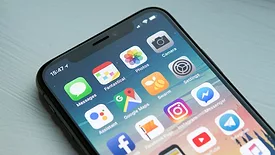Home » Keywords: » mobile security
Items Tagged with 'mobile security'
ARTICLES
Education & Training
Unpacking data breaches: Insights from security experts
Security magazine discusses data breaches and mobile data breaches with cybersecurity experts.
February 11, 2025
Integrated Solutions
Managing risks in an evolving cybersecurity environment
An evolving mobile device threat landscape demands a multi-layered defense strategy.
February 6, 2025
Risk management and mobile devices
Listen to Jim Coyle, U.S. Public Sector Chief Technology Officer at Lookout, in this podcast episode
June 26, 2024
EVENTS
Webinar
3/6/25 to 3/6/26
Contact: Lauren Whitaker
Why Mobile Device Response is Key to Managing Data Risk
Sign-up to receive top management & result-driven techniques in the industry.
Join over 20,000+ industry leaders who receive our premium content.
SIGN UP TODAY!Copyright ©2026. All Rights Reserved BNP Media.
Design, CMS, Hosting & Web Development :: ePublishing













